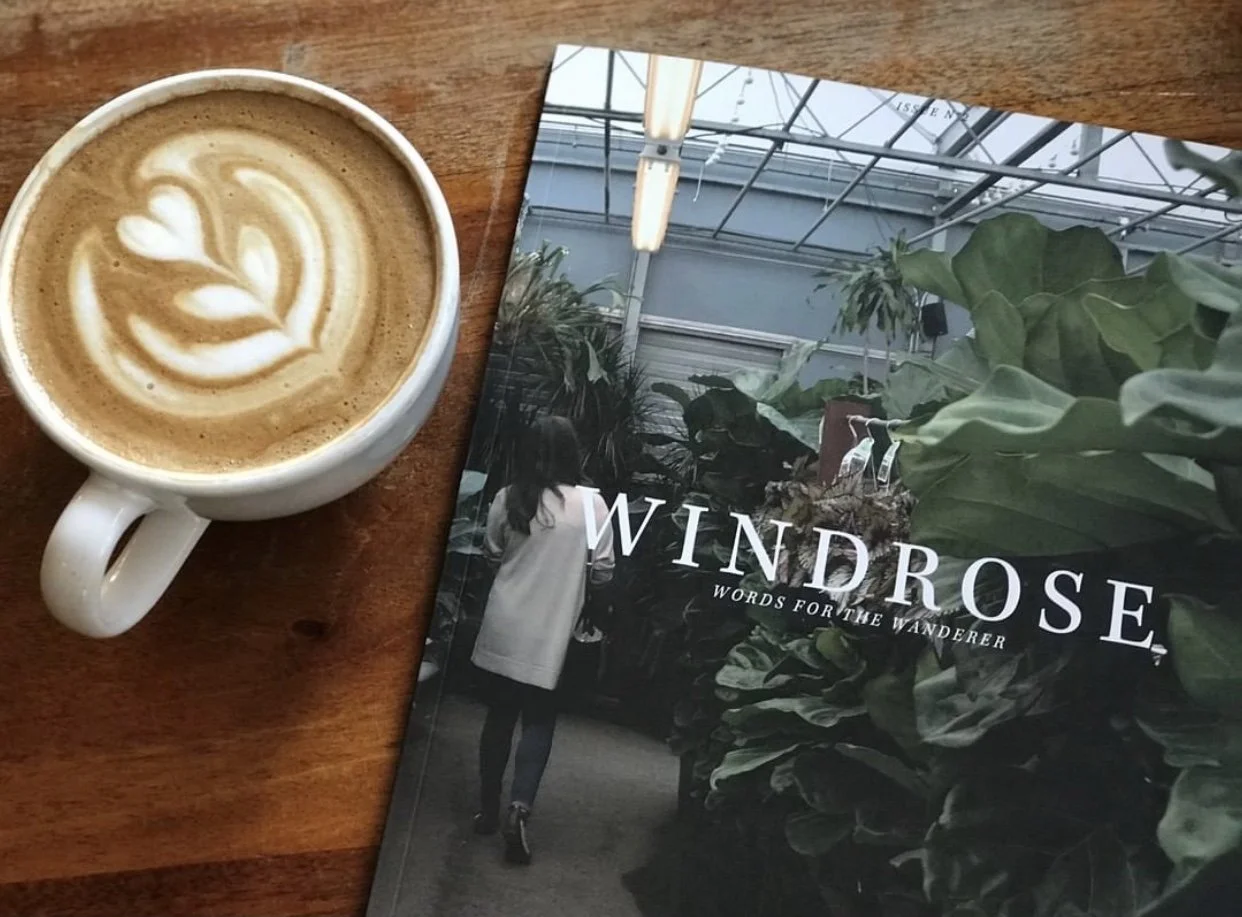Call Me Amy Jo: On Reclaiming the Joy of Writing
Please do not literally call me Amy Jo.
Savannah, Sav, or Savy (or any version of those three) is always fine. My mom often called me by my full name, “Savannah Ruth,” when I got into mischief as a child… and still as an adult. “Blondie” is a nickname a few people have thrown around. One that I used to be extremely embarrassed by was “Nana.” My younger brother couldn’t say “Savannah” when he was little, so my entire family ran with it. It went so far that every year for my birthday, my family would get me store-bought cards that said, “Happy Birthday, Nana!” In all my dramatic tendencies as a child, I ignored that the name was endearing and instead dwelt on how I must have been the only 8-year-old in the entire world getting a birthday card designed for a grandma.
I am a sucker for metaphors, though. So if you refer to me as Amy Jo metaphorically, I would deem that as one of the highest compliments.
With that said, the question I need to address now is, “How is the name Amy Jo metaphorical?”
My brain works in weird ways. One of those ways is making connections, almost like an invisible string (just to clarify: I used that metaphor before Taylor Swift wrote a whole song about it, but I digress).
A specific way I do this is finding myself in characters of books and movies. Everyone looks for ways to identify with a certain character, but my brain constantly clings to traits, aspirations, trials, and so on of each character portrayed.
Typically, I don’t identify with a single character; rather, I create a storyline in my own head that pulls from various parts I resonate with of each character. Perhaps this is an overworking of my brain, or I think too hard when I should be enjoying a story.
This habit came up when I watched the recent adaptation of Little Women. Most people have compared me to Jo for the obvious reason that she writes. Yet I, of course, found myself in each of the March sisters. I won’t go into detail of how I relate to the four of them because that would fill up pages for its own piece. However, for my recent frustrations with writing, connections to both Amy and Jo help to explain.
There is a moment in the movie when Amy comes to her own conclusion that her artistic pursuits are pointless. In true Laurie fashion, he asks why she would give up if she is so talented.
Amy responds, “Talent isn’t genius. And no amount of energy can make it so. I want to be great, or nothing. And I will not be some common-place dauber, and I don’t intend to try anymore.”
A dauber is someone who paints unskillfully, and while I enjoy using watercolors every now and then, replacing this word with “hack” is more fitting for this comparison.
In other words, lately I have felt I am a mediocre writer.
In a different scene, Jo quietly declares to Marmie about her writing, “I don’t do that anymore.”
She has come to her own conclusion that her writing ambitions are unsuccessful. Jo’s novel proposal was not praised with high regards, and the words Jo wrote for Beth did not save her.
Later, Jo goes to the extreme of burning her pages of words. This moment honestly moves faster than it should. There is a deeper meaning here of being so utterly disappointed and discontent that Jo literally and metaphorically burns her pursuits.
With so many aspirations for writing, I have recently sat in a similar state of mind. From a young age, family and friends will tell you I have had a gift for crafting words on a page. I do not say that to brag but rather to contrast my own opinion of this gift.
I have wanted to use this talent to achieve, so I write on my blog and I find new websites to submit and publish my writing again and again. It is a cycle of wanting more but never being satisfied with what I’ve just accomplished. My inspiration has been to achieve, and while I have done so, I am always left unfulfilled because there is always some way I could improve or do more; thus, my own conclusion is my writing is inevitably futile.
I am getting lengthy and long-winded, so here is the moral point of this metaphor.
Eventually, Jo begins to write her new book. She becomes completely lost in her writing. Her candles burn out, her hair slowly becomes a mess, and she even has to switch hands because of cramps. And while adding page after page to her collection on the floor seems to communicate success, there is one consistent item in this scene driving her success: a green jacket she wore when acting out plays with her sisters.
No, the coat itself isn’t literally inspiring her. But it is metaphorically. As she finally regains a purpose for writing, it is her family, friends, and the memories she shares with them which inspires her passion. She gets the book published, and she starts her own school. Amy regains a similar purpose of teaching painting to children while surrounded by the people she cares about most.
So, there’s the answer to the posed question.
Call me Amy Jo not because of what I have or will achieve; what I achieve is no longer the focal point. A constant pursuit of what’s next and how to improve will always leave me empty and dissatisfied with the very gift and talent that brings me joy.
Call me Amy Jo because of my inspiration: the people and memories that make up my life. That is the new metaphor guiding my writing. I want to do away with the need to be great or genius or accomplished. Embracing my inner Amy and Jo by setting aside tiresome pursuits and putting on my green jacket will restore my talent to the euphoria it was meant to bring.














Savannah earned her Bachelor of Science in Education from Delta State University in 2019. She is pursuing a Master of Divinity at Truett Seminary and is an InterVarsity Campus Staff Minister at Baylor. She is published at Eight Hundred Words and Windrose Magazine. She is the founder and chief editor of A Common Thread, a community for creators to share arts of all kinds. You can also connect with Savannah on her website, Words in the Crevice, and on Instagram @savygreen. You can find her poetry books Seaway and Oasis on Amazon.